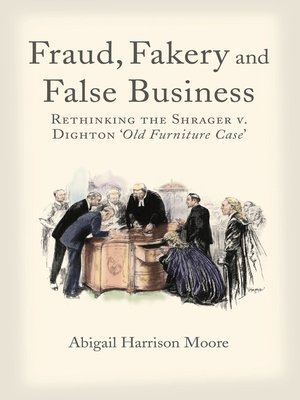Fraud, Fakery and False Business
ebook ∣ Rethinking the Shrager versus Dighton 'Old Furniture Case'
By Abigail Harrison Moore

Sign up to save your library
With an OverDrive account, you can save your favorite libraries for at-a-glance information about availability. Find out more about OverDrive accounts.
Find this title in Libby, the library reading app by OverDrive.



Search for a digital library with this title
Title found at these libraries:
| Loading... |
In 1922, Adolphe Shrager having made his fortune during the First World War, approached the London dealer Basil Dighton for advice on purchasing antique furniture. Dighton sold him about five hundred items but shortly afterwards Shrager discovered that one of his 'collector's pieces' was judged to be a fake and grossly over-priced, and he sued. The trial, held in early 1923, became a cause celebre, but it can be viewed as a case study of a much wider set of social and cultural concerns: the fact that Shrager lost both the first trial and the appeal, despite demonstrating on numerous occasions that he had a clear case against Dighton, raises questions of race, prejudice and class, where the establishment closed ranks against Shrager, the nouveau riche Jew and alleged war profiteer. This book - the first on the Shrager Dighton case - is the result of the author's original archival research.






